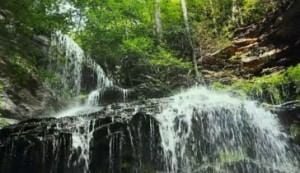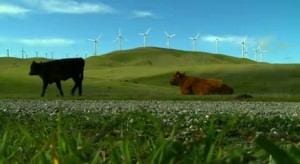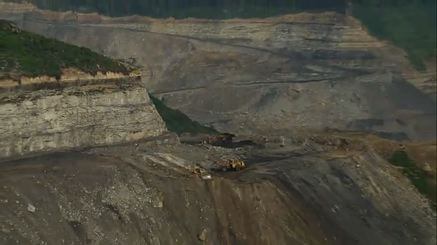Travel News
West Virginia Tourism & Mountaintop Removal Mining
As we always say, travelers vote with their dollars.
While the state of West Virginia has some of the most beautiful natural resources, it also suffers from some of the most troubling environmental practices.
Peter and Clara Bingham, producer of the film The Last Mountain discuss the devastating impact of mountaintop removal coal mining.
Peter Greenberg: The Last Mountain is an amazing movie about a very important situation that affects all of us. What is the real message here?
Clara Bingham: The movie is about mountaintop removal coal mining in West Virginia and one community’s struggle to save the last really great mountain in Appalachia, River Mountain, which is slated to be imploded for coal by the Massey mining company. The movie followed the citizens there who staged an amazing protest for 18 months. Over 200 were arrested. This one community wants to put a wind farm on top of the mountain instead of losing the mountain to coal and what it takes to try and change the system down there. The film is also about a bigger issue, which is our addiction to coal, which provides 50 percent of the electricity in America.
PG: It’s called The Last Mountain. What about all the other mountains that have already been imploded? One of the most valuable images is at the beginning of the movie, when you see an actual mountain being imploded and what it leaves. The residue is not temporary, it’s permanent.
CB: It’s just awful. In fact, 500 mountains have been destroyed in Appalachia, which covers West Virginia, Eastern Kentucky, Tennessee, and Virginia. It’s equivalent to the state of Delaware. And we’ve also destroyed a million acres of forest and buried 2,000 miles of stream. We’re completely annihilating an important part of our country. It’s a terrible environmental atrocity, and a human rights story.
PG: There are so many different issues here. There’s human rights, there’s jobs, and there’s some health issues that can’t be ignored.
CB: A new study has just come out that shows that birth defects in communities close to mountaintop removal mining are 42 percent higher than the rest of the country. They’re even 42 percent higher than other places that mine coal underground.
 PG: I talk to West Virginians about traditional travel-related topics like white water rafting on the Galt River and hiking and biking trails. But, if you go to West Virginia, especially that part of the state, it’s a visual image you cannot ignore.
PG: I talk to West Virginians about traditional travel-related topics like white water rafting on the Galt River and hiking and biking trails. But, if you go to West Virginia, especially that part of the state, it’s a visual image you cannot ignore.
CB: No kidding. That’s why I felt it was so important to make this movie. When I first saw the landscape with my own eyes way back in 2004, I could not believe just how horrifying it was. This is strip mining on steroids. It is so much worse than anything I could have imagined. I realized the only way to really tell the story, to really show people what’s going on, is by making a movie.
PG: And you can also vote with your wallet. You can say, I’m either going to go and try to stop this or I’m not going to go and spend my dollars there.
CB: Tourism is an incredibly important industry for West Virginia. West Virginia has the most beautiful forests in the country, the original primal forests that were not covered by the glaciers during the ice age. It’s also the most bio-diverse part of the country. There are eighty different types of trees there. It is one of the most wonderful places to travel to in America except we’re destroying it. The state should gain much, much more money than they do from tourism.
Learn about visiting West Virginia with Ask the Locals Travel Guide: Greenbrier Valley, West Virginia
PG: This movie is a call to action. This is a long movie and it held my attention. Just when you think it couldn’t get worse, it gets worse. It’s a powerful message. But, there’s always that double-edged sword argument used by the coal people in your movie that if you stop this everyone is going to lose their job.
 CB: That’s what it comes down to in West Virginia and everyone is so afraid because it’s a one-company town. The entire state is, and the coal industry has made sure it stays that way. Just like with the other parts of the Brass Belt in Ohio and Pennsylvania, it’s time to diversity economically in West Virginia. The coal industry itself has destroyed so many jobs because of mountaintop removal mining. It’s a completely mechanized form of mining. Right now the wind industry actually employs just as many people as the coal industry does nationwide. It’s time to start transitioning to renewable energies that will also bring jobs.
CB: That’s what it comes down to in West Virginia and everyone is so afraid because it’s a one-company town. The entire state is, and the coal industry has made sure it stays that way. Just like with the other parts of the Brass Belt in Ohio and Pennsylvania, it’s time to diversity economically in West Virginia. The coal industry itself has destroyed so many jobs because of mountaintop removal mining. It’s a completely mechanized form of mining. Right now the wind industry actually employs just as many people as the coal industry does nationwide. It’s time to start transitioning to renewable energies that will also bring jobs.
PG: There’s a real connection between Wales and West Virginia. At the turn of the last century, Wales was the coal capital of the world. In fact, fortunes were built by coal barons that would make Saudi sheiks jealous. That’s the way it was until then Prime Minister Margaret Thatcher made a rule that they would no longer mine coal. Within two years Wales’ economy tanked completely, just like the folks in West Virginia claim would happen to them. But then guess what happened? People adjusted, they adapted, and the Welsh economy is now booming. It has turned around travel and tourism. Its agro-business is completely different. The coal business is dead, but Wales is living very well.
CB: That is such a great example. It’s harder to do that in America because the political influence of the coal lobby is enormous. The coal mining industry gave $86 million in the last decade to Congress. And coal burning utilities are incredibly powerful. They’ve given a billion dollars to coal campaigns and lobbying.
 PG: Water quality here is an important issue. Every time you implode a mountain, every time you continue to do coal mining, water is threatened beyond belief.
PG: Water quality here is an important issue. Every time you implode a mountain, every time you continue to do coal mining, water is threatened beyond belief.
CB: Absolutely. This movie is not just about West Virginia. It’s about the entire country because of the fish we eat. In every single state there are warnings against freshwater fish because of mercury poisoning, which comes largely from coal power plants. There are 600 plants all across the country and they’re spewing mercury that’s floating in clouds and dropping into lakes, and streams, and rivers. It’s unsafe in virtually every part of America to eat freshwater fish because of coal.
PG: After you see The Last Mountain, what should somebody do to really make a difference?
CB: There are several things you can do immediately. Try to reduce your electricity use. Turn off your lights, change your light bulbs, turn off your computer when you’re not using it. If we think about it, we waste so much electricity and its really unnecessary. The movie makes you aware of where your electricity is coming from. Every man, woman, and child in America burns 16 pounds of coal each day for electricity. We can all reduce our use.
We can ask our power companies to change. Often power company gives you a choice whether you want to use coal, traditional fossil fuel, or renewable sources for your power. If you can make that choice and use renewable, even if it is slightly more expensive, you’re really doing your part.
Lastly, you can go to our website, TheLastMountainMovie.com and we have a section where you can lobby the Obama administration to help make a difference.
By Peter Greenberg for Peter Greenberg Worldwide Radio.
Related links:
- Ask the Locals Travel Guide: Greenbrier Valley, West Virginia
- Spotlight On: Cardiff, Wales
- 50 Jobs, 50 States, 50 Weeks: Daniel Seddiqui, Living The Map
- The Virtuous Traveler: Yellowstone National Park, Hotter & Bothered
- Historic Hotels: Unusual Stays With a Unique Past
- Radio Show From White Sulphur Springs, West Virginia












